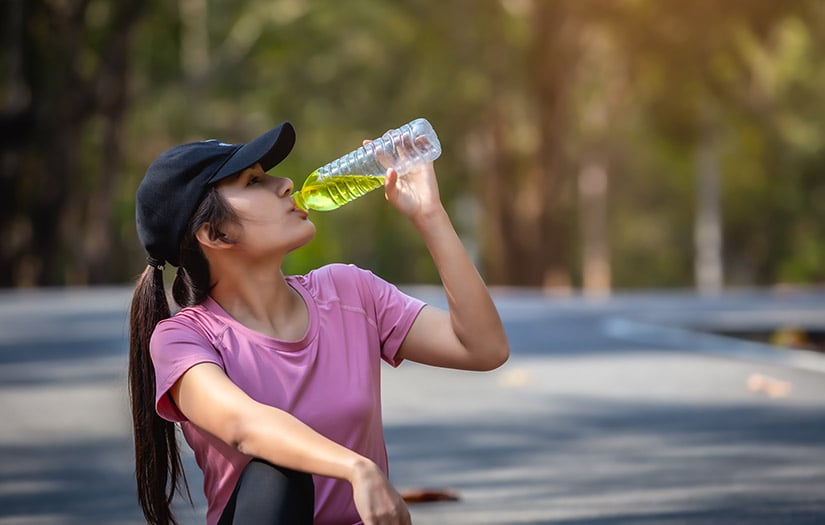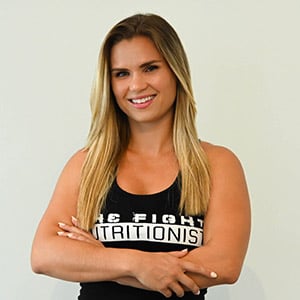Have you ever worn a hat during your workout and later noticed white stains all over it? Well, those aren’t necessarily stains, but the dried electrolytes from your sweat!
Electrolytes (and hydration) is an important subject to dive deeper into. This blog will specificially talk about foods that can replenish electrolytes naturally.
See this guide to micronutrients for an overview of other crucial vitamins and minerals to get enough of in your diet!
Table of Contents
- What are Electrolytes
- Foods to Replenish Electrolytes
- Should You Use Electrolyte Beverages
- Signs of Electrolyte Imbalance
- Electrolytes Lost in Sweat
What are Electrolytes?
Electrolytes are minerals in the body that produce an electric current when dissolved in water and are responsible for maintaining fluid balance, balancing the body’s pH level. They also move nutrients in cells, push waste out of cells, and keep the normal function of all of our nerves and muscles - especially our heart and brain.
The level of electrolytes in our body is highly influenced by the amount of food and water we consume or lack thereof.
How to get electrolytes
One of the easiest ways to get electrolytes is by eating foods rich in the minerals. All you need is a balanced diet that restores your sodium, potassium, calcium, and magnesium levels. You can make up for any electrolyte deficiencies during prolonged athletic activity by drinking sports drinks as well.
Foods to Replenish Electrolytes
Here are some of the best natural sources of electrolytes you can consume to replenish electrolytes:
To replenish sodium:
- Salted Nuts
- Pretzels
- Crackers
- Deli Meats
- Smoked Salmon
- Canned Beans
To replenish potassium
- Bananas
- Potatoes
- Leafy Greens
- Citrus
- Coconut
- Avocado
- Zucchini
- Mushrooms
- Halibut, Cod, or Tuna
- Legumes
To replenish Calcium
- Milk
- Yogurt
- Almonds
- Broccoli
- Fortified Cereals
To replenish Magnesium
- Pumpkin Seeds
- Spinach
- Dark Chocolate
- Nuts
- Whole Grains
- Peanut Butter
Should You Use Electrolyte Drinks?
Yes! Consumption of electrolyte beverages can also be helpful to prevent electrolyte imbalance and dehydration and is highly recommended when intense exercise exceeds 1 hour in duration or is taking place in hot, humid environments where sweat rates are significantly increased. Water follows sodium, which is why electrolytes are an excellent hydrating agent.
The Best Drink to Replace Electrolytes
Choosing electrolyte beverages such as Pedialyte, sports drinks like Gatorade, Powerade, or Body armor, electrolyte infused waters, or mixing electrolyte powders in your water is highly recommended if participating in activities outside for long durations.
However, consuming too many electrolytes is possible and can lead to issues such as nausea, vomiting, diarrhea, and mental confusion. So it’s important to not drink excessive amounts of electrolyte beverages in a short period.
Common Signs of Electrolyte Imbalance
Common signs of electrolyte imbalance include:
- dizziness
- muscle cramps
- irregular heartbeat
- mental confusion
- headache
- fatigue
- dark-colored urine
- nausea & vomiting
Since most people will experience signs and symptoms of low electrolyte levels due to dehydration, it’s important to ensure you’re consuming adequate water and electrolytes throughout the day. Luckily, many electrolytes exist naturally in foods
Read also: Monitoring Hydration Levels
Electrolytes Lost in Sweat
The majority of people will usually lose electrolytes by excessive sweating and not replacing both fluids and electrolytes lost in sweat. But what electrolytes exist in sweat? Sweat is composed of sodium, chloride, potassium, magnesium, and calcium. Sodium and chloride are the most abundant electrolytes in sweat and are responsible for regulating and maintaining fluid balance (along with potassium). Magnesium and calcium play important roles in maintaining muscle function and optimizing metabolism.
Since the balance of electrolytes in our body is highly influenced by how much water we lose through sweat and/or how we replace it by consumption of water and food, it’s essential to be aware of some critical signs and symptoms of the levels in our body are too high or too low.
If you have COVID, be sure to replenish electrolytes through a supplement or other sources.
Conclusion
Overall, electrolytes are important for maintaining hydration levels and ensuring optimal muscle and nerve function. Dehydration is the most likely cause of electrolyte imbalance, and it’s crucial to ensure you are drinking plenty of fluids and eating a variety of healthy foods throughout the day to prevent any issues associated with low electrolyte levels.

















